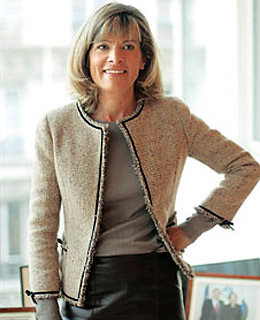
Anne Lauvergeon is the archetypal overachiever. In a world that chews up and spits out high-profile executives at dizzying speeds, Lauvergeon has long managed to get to the top fast and stay there. As chairwoman of Areva, a firm she virtually created in 2001, she has become one of the most influential figures in the controversial global nuclear power industry. To get there, she merged French state-owned groups spanning activities from mining and waste processing to power-plant construction. And now, as governments in Europe, Asia and the U.S. turn with new interest to nuclear power to lessen their dependence on oil, Areva's future prospects are growing brighter.
A scientist by training, Lauvergeon, 45, worked in the energy industry before landing in the corridors of political power. A product of the Zlite, state-run graduate schools that produce and polish the mostly male corps of French civil servants, business brass and politicians, Lauvergeon is one of the rare women to have shattered France's glass ceiling. After a few years in the mining and atomic-energy industries, she joined President François Mitterrand's administration in 1990, ultimately becoming deputy chief of staff and ÒsherpaÓ for G7 meetings.
In 1999 she became CEO of the state-owned nuclear-reprocessing-and-services firm Cogema, one of three units merged to create Areva. Lauvergeon these days races around the globe promoting French nuclear power. When she fights with environmentalists, she does so carefully, challenging antinuclear activists to square their position with their parallel call to combat climate change. Given the high price of oil, Lauvergeon's message never sounded better.
Lagarde chairs the global policy committee at Baker & McKenzie, the Chicago-based law firm